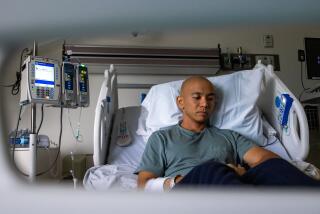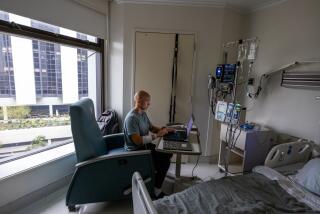Stem cells should be collected from Fukushima Daiichi workers in case they are needed for treatment, doctors say
Workers at the Fukushima Daiichi nuclear power plant in Japan should have their blood stem cells collected and stored in case the workers are exposed to excess radiation and require medical treatment during the shutdown and cleanup necessitated by the magnitude 9 Tohoku earthquake and the tsunami that followed it, Japanese physicians said Thursday. Bone marrow transplants are a common treatment method for such exposures, but they can be time-consuming when a search has to be made for matching donors and the recipients then have to take immunosuppressive drugs for the rest of their lives. Storing a patient’s own bone marrow in advance could alleviate both of those problems, a team of five physicians wrote in a letter published in the online version of the journal Lancet.
The physicians suggest collecting peripheral blood stem cells, which is a well-used, relatively straightforward procedure. Injections are given to stimulate the bone marrow to release the cells into the blood, which is then filtered to collect the cells. The cells can be frozen and stored for future use. The procedure takes a few hours for each donation. The cells could be used to treat radiation damage to the bone marrow cells, which are highly susceptible to radiation damage because they are constantly dividing. The cells could also be used to treat any leukemia that were to develop as a side effect of exposure to radiation. The authors say that 107 transplant teams in Japan have agreed to help collect and store the cells and that more than 50 hospitals in Europe have agreed to help the workers if necessary.
But Japan’s Nuclear Safety Commission has resisted the idea, citing the “physical and psychological burden” for the nuclear workers and the lack of consensus among international bodies about the desirability of collecting the cells.
Some critics also charge that the collected cells would have only limited utility. If the workers are exposed to a mild dose of radiation, their bone marrow will heal itself. And if they are exposed to a severe dose, then their intestines and other organs will be severely damaged in addition to the bone marrow, so there is little purpose in replacing only the bone marrow.
More to Read
Sign up for Essential California
The most important California stories and recommendations in your inbox every morning.
You may occasionally receive promotional content from the Los Angeles Times.










